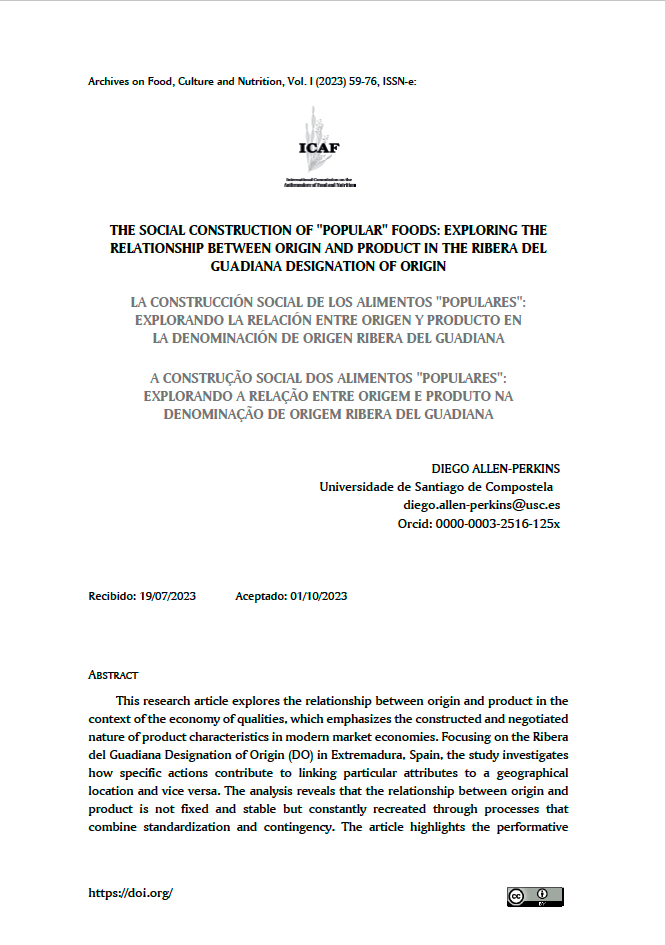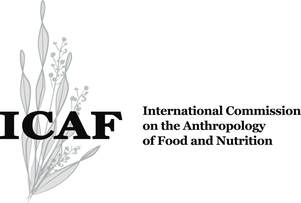The social construction of “popular” foods
Exploring the relationships between origin and product in the Ribera del Guadiana Designation of Origin
DOI:
https://doi.org/10.17398/3020-3635.1.59Keywords:
economy of qualities, designation of origin, popular food, food productionAbstract
This research article explores the relationship between origin and product in the context of the economy of qualities, which emphasizes the constructed and negotiated nature of product characteristics in modern market economies. Focusing on the Ribera del Guadiana Designation of Origin (DO) in Extremadura, Spain, the study investigates how specific actions contribute to linking particular attributes to a geographical location and vice versa. The analysis reveals that the relationship between origin and product is not fixed and stable but constantly recreated through processes that combine standardization and contingency. The article highlights the performative dimension of the “origin” category, showing how it associates the qualities defining the product's uniqueness and connects it to a specific place. The study draws on ethnographic research conducted at the Almendralejo Enological Station, which plays a crucial role in regulating the Ribera del Guadiana DO. Two specific processes of diversified standardization—ripeness control and harvest window adjustment, as well as organoleptic analysis and analytical sample control—are examined in detail. The findings demonstrate the procedural construction of the DO Ribera del Guadiana object and emphasize the role of coordination among various agents in stabilizing product properties. By tracing the journey of the object from the vineyard to the laboratory and through the analytical report, the article sheds light on the dynamic nature of standardization processes and their impact on the relationship between origin and product.
Downloads

Published
Versions
- 2023-11-25 (2)
- 2023-11-06 (1)
Issue
Section
License
Journal editors must be attentive to intellectual property issues and work together with their editor to manage potential infringements of intellectual property laws and conventions. It is important to note that the intellectual property laws of the local jurisdiction are sovereign.
All content published in Archives in Food, Culture and Nutrition (AFOCUN) is under a Creative Commons Attribution 4.0 International License (CC BY 4.0) for open access. This license allows others to distribute, remix, adapt, and build upon the work, even for commercial purposes, as long as appropriate credit is given to the original author. Authors retain copyright and grant the journal the right of first publication, registering the work under the corresponding attribution license. This allows third parties to use the published content as long as the authorship of the work and the original publication in this journal are acknowledged.
For more information about the license terms, see the official link: Creative Commons Attribution 4.0 International License.
Archives in Food, Culture and Nutrition respects the intellectual and proprietary rights (copyright) of published works and allows authors to freely use their own published works, always within the limits of applicable law









